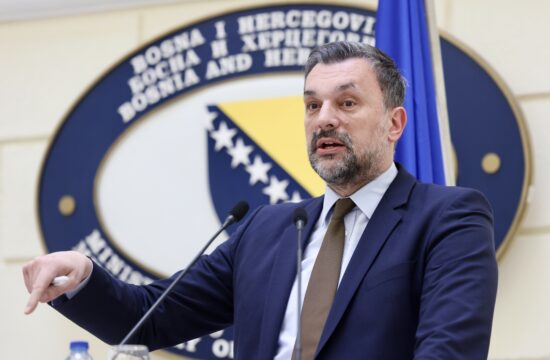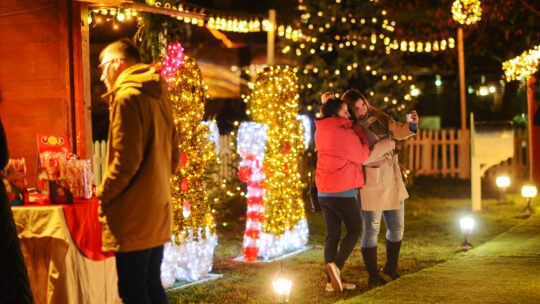The presidents of Serbia and Republika Srpska visited on Monday the construction site of the Serb Orthodox Cathedral of the Holy Trinity and discussed the position of Serbs in Mostar with the Orthodox Bishop Grigorije.
Serbian President, Aleksandar Vucic, arrived in Mostar for the Tuesday International Economic Fair, but he met with the president of the Bosnian Serb semi-autonomous region, Milorad Dodik, and Bishop Grigorije a day before the opening of the fair.
After it was completely destroyed during the 1992-95 war in Bosnia, the Cathedral – one of Mostar’s landmarks that sits on a hill overlooking the city – is being reconstructed for years and according to the Bishop should be finished in 2020. Serbia funded the reconstruction with some 700.000 euro, Vucic said, adding that the Mostar Cathedral is both a religious as well as a cultural object “that will mean a lot to our people who stayed in Mostar and Herzegovina.”
“It will also mean a lot to the Croats and Bosniaks who will have a complete multicultural image of their city,” he added.
Dodik said he wished the Federation entity government would help with the reconstruction of this church as Republika Srpska helped with the construction of mosques and other buildings on its territory.
“I hope we meet here again in 2020, when the works are done. Without the help of Serbia, everything would be different and more difficult to achieve,” Dodik added.
Bishop Grigorije told N1 on Monday that people keep asking him whether there will be another war. Vučić addressed their concern during the visit.
“I can speak about Serbia and about what Serbia wants,” Vucic said.
“I am nearly certain there will not be a war, and I say this on behalf of Serbia and a large part of the Serbian people,” he said.
People in Herzegovina’s Serb municipalities are not really rich and need help, Vucic stressed.
“When you look at the area of Ljubinje, Berkovici, Nevesinje, Bileca and Trebinje, people have good reason to ask for help, not only from Republika Srpska and the Federation entity, but also from Serbia,” he concluded.
The three also discussed the idea opening a Serbian consulate in Mostar and other issues that may be of interest for ethnic Serbs living in this part of the country. Bishop Grigorije said the Serbs in Mostar are happy to be able to see two Serb presidents visiting the city which “is also a Serb city and nobody can expel us from here, as nobody can expel any other ethnic group from here.”
The Mostar diocese, Grigorije said, already exists for 800 years.




